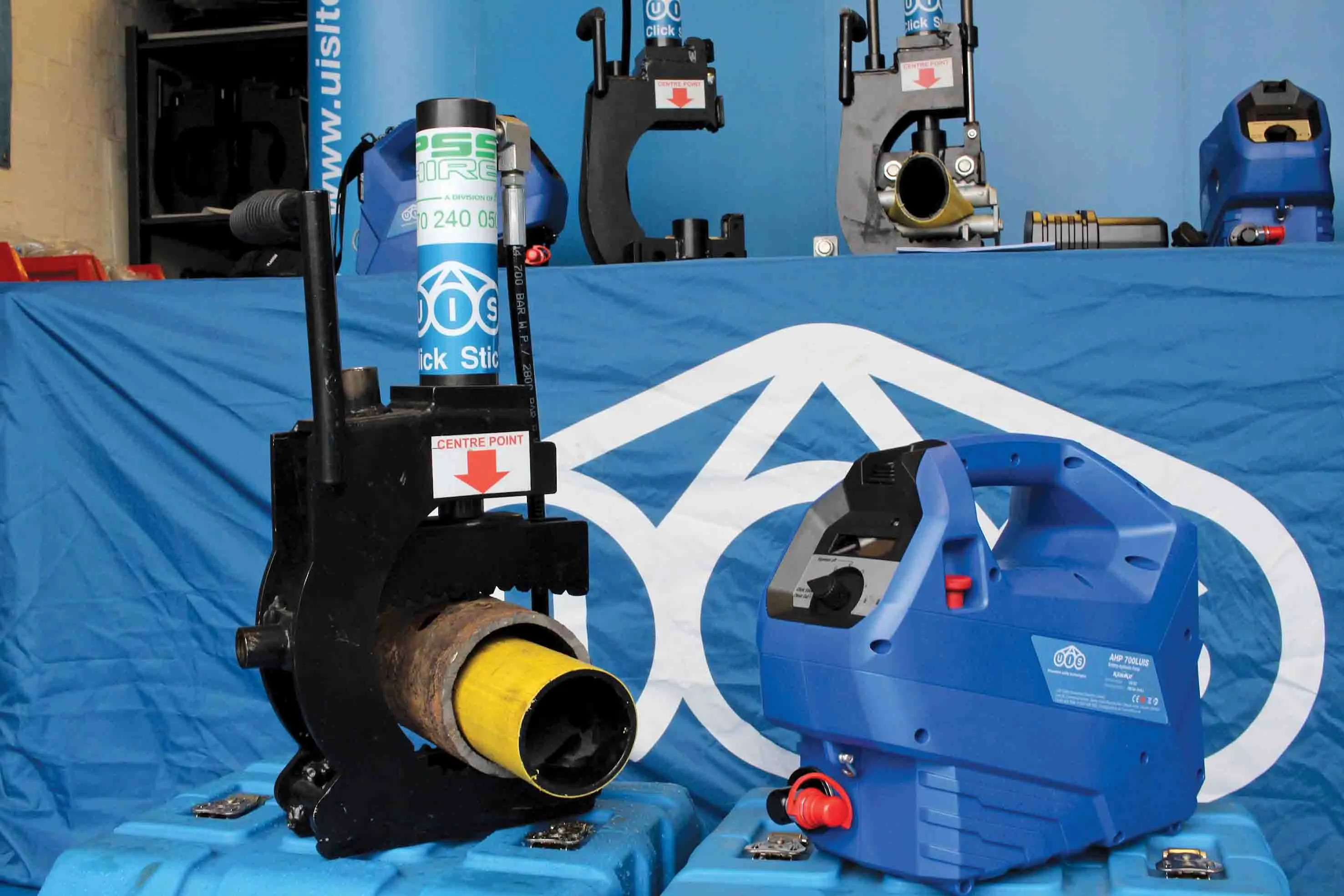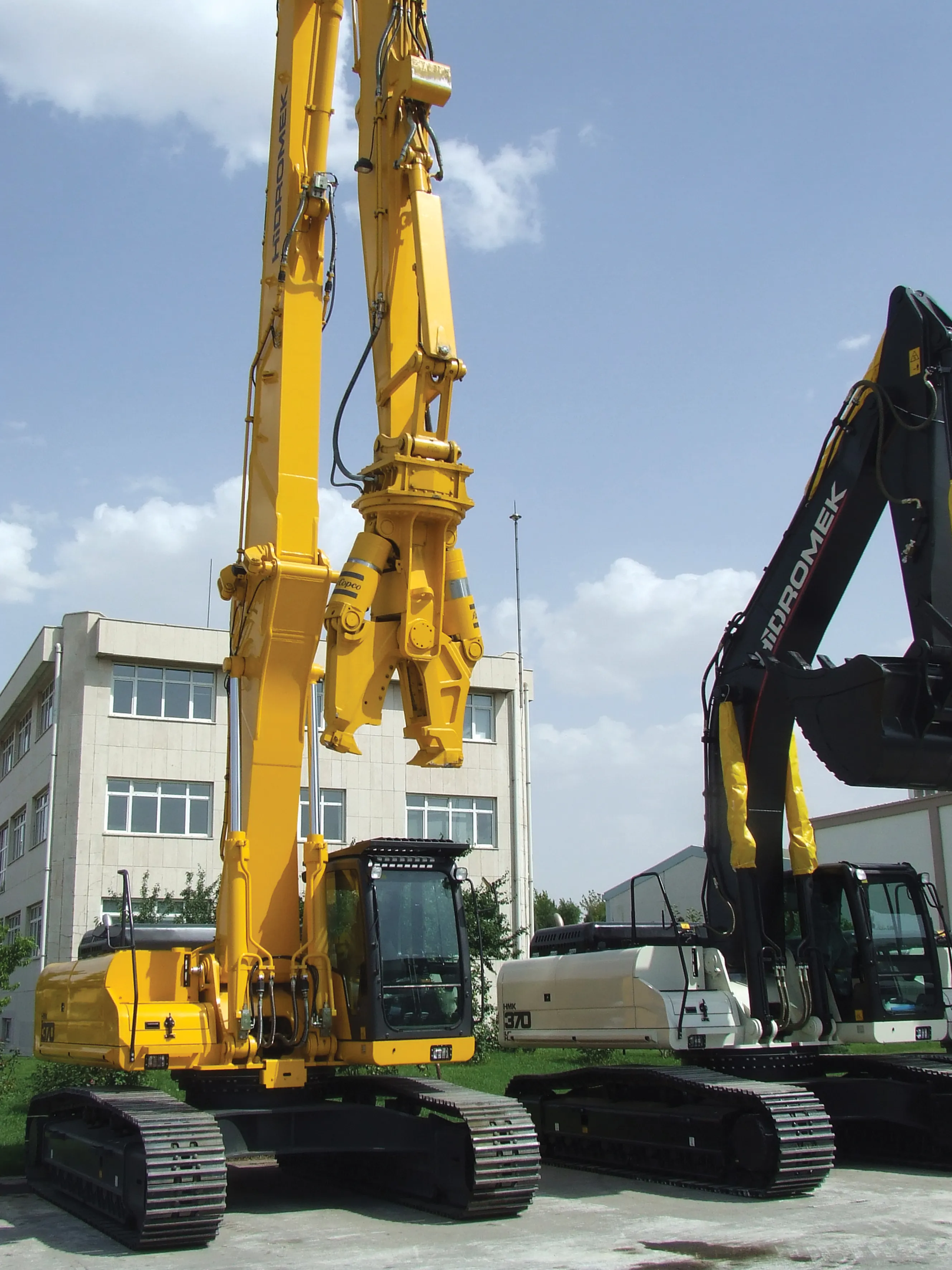A new tool offers the chance to speed repairs to utilities, reducing disturbance to drivers and pedestrians alike in busy urban areas.
The conventional way to break into an existing cast iron main has been to expose it from the surface in a pit and then hit it hard with something until it breaks. However, this is no longer considered either safe or efficient. Instead, Utility Innovation Solutions (UIS) has delivered a more effective tool, the Click Stick.
April 4, 2017
Read time: 2 mins

A new tool offers the chance to speed repairs to utilities, reducing disturbance to drivers and pedestrians alike in busy urban areas.
The conventional way to break into an existing cast iron main has been to expose it from the surface in a pit and then hit it hard with something until it breaks. However, this is no longer considered either safe or efficient. Instead, Utility Innovation Solutions (UIS) has delivered a more effective tool, the Click Stick.
UIS has designed the Click Stick for breaking into cast iron mains pipes safely without the need for brute force from the site crew. This manually operated tool is quick and easy to use. Once the pipe to be accessed is exposed, the lightweight Click Stick is manually lowered into the excavation and using its C-section construction is positioned around the pipe.
There is a guide/location arrow to show where the centre of the unit should be placed in relation to the pipe to ensure the breaking action is applied to best advantage. When in the right position, the operator activates the battery powered hydraulic pump, which engages a vertical ram to grip the pipe. As the force on the ram is increased the pipe breaks in a controlled and safe way with the operator at a safe distance from the fracture when it occurs.
The unit has been extensively tested during its development and is now being introduced with a number of key rental and utilities firms in the UK amongst repair crews.
The conventional way to break into an existing cast iron main has been to expose it from the surface in a pit and then hit it hard with something until it breaks. However, this is no longer considered either safe or efficient. Instead, Utility Innovation Solutions (UIS) has delivered a more effective tool, the Click Stick.
UIS has designed the Click Stick for breaking into cast iron mains pipes safely without the need for brute force from the site crew. This manually operated tool is quick and easy to use. Once the pipe to be accessed is exposed, the lightweight Click Stick is manually lowered into the excavation and using its C-section construction is positioned around the pipe.
There is a guide/location arrow to show where the centre of the unit should be placed in relation to the pipe to ensure the breaking action is applied to best advantage. When in the right position, the operator activates the battery powered hydraulic pump, which engages a vertical ram to grip the pipe. As the force on the ram is increased the pipe breaks in a controlled and safe way with the operator at a safe distance from the fracture when it occurs.
The unit has been extensively tested during its development and is now being introduced with a number of key rental and utilities firms in the UK amongst repair crews.









